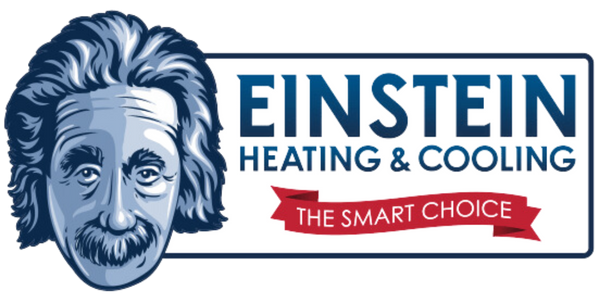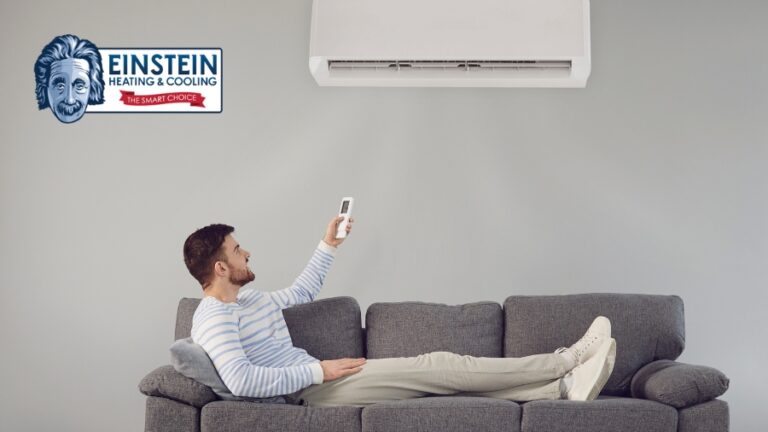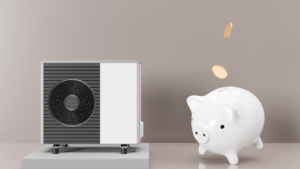Heating and cooling systems, commonly known as HVAC (Heating, Ventilation, and Air Conditioning) systems, play a crucial role in our daily lives. They offer a range of benefits that go beyond regulating indoor temperatures. In this blog, we will explore the various advantages of heating and cooling systems, from providing comfort and improving air quality to increasing energy efficiency and promoting well-being. Understanding these benefits will help you appreciate the importance of these systems and make informed decisions about their installation and maintenance.
1. Comfortable Indoor Environment
One of the primary benefits of heating and cooling systems is creating a comfortable indoor environment. During cold winters, heating systems provide warmth, allowing you to escape the chill. On the other hand, cooling systems ensure relief from scorching summers by maintaining optimal indoor temperatures. These systems enable you to enjoy a cozy and pleasant environment regardless of the weather outside.
A comfortable indoor environment is essential for our well-being, and heating and cooling systems play a crucial role in achieving this. In cold winters, heating systems diligently work to provide a cozy and warm atmosphere, shielding you from the harsh chill that lurks outside. You can bundle up in your favorite blanket, sip on a hot beverage, and relax without worrying about the biting cold. On the flip side, during scorching summers, cooling systems come to the rescue, keeping indoor temperatures cool and refreshing. You can escape the sweltering heat and find solace in a pleasantly cool environment. Whether it’s icy winds or blazing sun rays, heating and cooling systems ensure that you can always retreat to a comfortable indoor haven, allowing you to relax, work, and spend quality time without being affected by extreme weather conditions.
2. Improved Air Quality
Heating and cooling systems contribute to enhanced indoor air quality. They are equipped with air filters that remove dust, allergens, and other pollutants from the air, creating a healthier living or working space. By preventing the circulation of stale air, these systems reduce the risk of respiratory issues and allergies, benefiting individuals with asthma or sensitivities to airborne irritants. Cleaner air promotes well-being, enabling you to breathe easier and enjoy a healthier lifestyle.
Heating and cooling systems play a vital role in improving indoor air quality. Equipped with effective air filters, these systems work tirelessly to remove dust, allergens, and other harmful particles from the air. By capturing and trapping these pollutants, they prevent them from circulating throughout your living or working space. This filtration process creates a healthier environment by reducing the presence of airborne irritants that can trigger respiratory issues and allergies. Individuals with asthma or sensitivities to pollutants can especially benefit from the cleaner air provided by heating and cooling systems. Breathing in cleaner air promotes overall well-being, allowing you to enjoy a healthier lifestyle and breathe easier in your indoor surroundings.
3. Energy Efficiency and Cost Savings
Investing in energy-efficient heating and cooling systems can lead to substantial cost savings. Modern systems are designed to operate more efficiently, consuming less energy to maintain desired temperatures. This results in lower utility bills and decreased energy consumption, allowing you to save money in the long run. Additionally, energy-efficient systems have a reduced environmental impact, contributing to a greener and more sustainable future.
Energy efficiency is a significant benefit of modern heating and cooling systems, offering not only cost savings but also environmental advantages. These systems are designed to operate efficiently, utilizing advanced technologies to minimize energy consumption while maintaining optimal indoor temperatures. By reducing energy usage, energy-efficient systems help lower your utility bills, allowing you to save money over time.
The savings can be substantial, particularly when considering the long lifespan of heating and cooling systems. Investing in energy efficiency means that you’ll continue to reap the financial benefits for years to come. With lower energy consumption, you can significantly reduce your carbon footprint, contributing to a greener and more sustainable future. By choosing energy-efficient heating and cooling systems, you play a part in conserving valuable resources and reducing greenhouse gas emissions.
Moreover, energy efficiency is not only beneficial for your wallet and the environment but also for the overall energy infrastructure. Reduced energy demand from efficient systems helps alleviate strain on power grids, leading to a more reliable and stable energy supply.
Energy-efficient heating and cooling systems offer cost savings, contribute to environmental sustainability, and support a more resilient energy infrastructure. By investing in these systems, you can enjoy the benefits of both financial savings and a reduced ecological footprint, while also promoting a greener future for generations to come.
4. Increased Productivity
Maintaining a comfortable indoor environment has a direct impact on productivity. Extreme temperatures, whether too hot or too cold, can negatively affect concentration and performance. Heating and cooling systems help regulate indoor temperatures, allowing individuals to work, study, or relax in an optimal environment. By creating a comfortable setting, these systems promote productivity, focus, and overall well-being.
A comfortable indoor environment provided by heating and cooling systems has a significant influence on productivity. Extreme temperatures, whether excessively hot or cold, can be detrimental to concentration and performance. By effectively regulating indoor temperatures, heating and cooling systems create an optimal environment for work, study, or relaxation. When individuals are in a comfortable setting, free from the distractions of temperature discomfort, they can focus better and work more efficiently. The ability to maintain a pleasant temperature promotes productivity, enhances concentration, and contributes to overall well-being, allowing individuals to perform their tasks with greater effectiveness and achieve better results.
5. Extended Equipment Lifespan
Regular maintenance and efficient operation of heating and cooling systems can significantly extend the lifespan of the equipment. Properly maintained systems experience less wear and tear, reducing the need for costly repairs or premature replacements. Routine inspections and tune-ups can identify and address minor issues before they escalate, ensuring optimal performance and longevity of the system. By investing in maintenance, you can protect your investment and enjoy the benefits of a reliable heating and cooling system for years to come.
Proper maintenance and efficient operation of heating and cooling systems can have a profound impact on the longevity of the equipment. Regular maintenance, including routine inspections and tune-ups, helps identify and address minor issues before they escalate into major problems. By promptly resolving these issues, the system experiences less wear and tear, reducing the likelihood of costly repairs or premature replacements.
Efficient operation also plays a crucial role in extending the equipment’s lifespan. When heating and cooling systems are used in accordance with manufacturer guidelines and operated efficiently, they experience less strain and stress, minimizing the risk of breakdowns and malfunctions.
Investing in regular maintenance and ensuring efficient operation allows you to protect your investment in the heating and cooling system. By extending its lifespan, you can enjoy the benefits of a reliable system for an extended period, avoiding the inconvenience and expense of frequent repairs or premature replacements. Additionally, an extended equipment lifespan reduces waste and promotes sustainability by reducing the environmental impact associated with manufacturing and disposing of new systems.
Heating and cooling systems offer a wide range of benefits that significantly enhance our daily lives. These systems provide a comfortable indoor environment, allowing us to escape extreme temperatures and enjoy optimal comfort year-round. They contribute to improved air quality by filtering out dust, allergens, and pollutants, promoting healthier living spaces. Energy efficiency is another notable advantage, as modern systems consume less energy, leading to cost savings and a reduced environmental impact. Additionally, heating and cooling systems support increased productivity by creating an optimal environment for work, study, or relaxation. Lastly, proper maintenance and efficient operation can extend the lifespan of the equipment, ensuring reliability and protecting your investment. With these benefits combined, heating and cooling systems play a vital role in providing comfort, improving air quality, and promoting overall well-being in our homes and workplaces.
For more detailed information on common heating and cooling mistakes to avoid, you can refer to the website https://einsteinheatingandcooling.com/5-common-home-heating-and-cooling-mistakes-to-avoid/.








